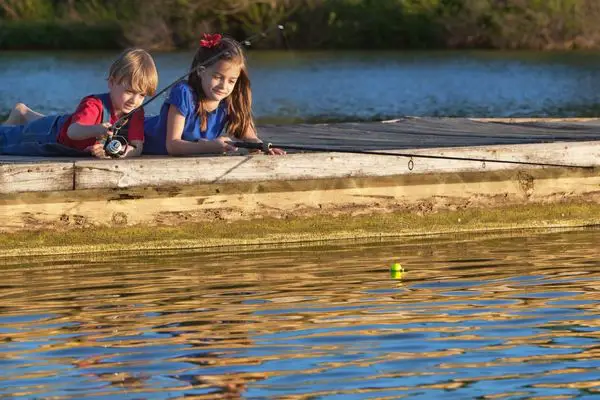Every summer, when I am in my home town. I go along to a local beach fishing competition put on by a local lions club.
This relaxed family friendly event involves a bunch of people relaxing in the sun, drinking beer, and soaking baits. Some people take it more seriously than others, but overall it is a casual affair, basically an excuse to spend the day fishing.
This event always takes place in the middle of the hottest time of the day, so year after year the fishing is nearly always slow. Catches few and far between. Some years even catching a fish will get you on the leader board. Once a crayfish got 7th place.
At this event, I started to notice something, children were often out fishing with their parents. I started to wonder why. I initially assumed, the parents were just letting the children catch the fish, or maybe the kids were simply more enthusiastic and spent more time fishing and less time snoozing in the sun. It soon become apparent there was more at play.
The main difference comes down to casting distance, the majority of adults were trying to cast to the horizon. Maybe they were thinking that the fish were holding in deeper, darker water far from shore, but I honestly believe many people just like to cast far and they did so out of habit.
Children, on the other hand, were not nearly as strong. Some of them were lucky to cast a few yards, so most of their baits were fishing within a dozen yards of the beach.
Most experienced fishermen probably already know this, but fish, often congregate in the shallows. This is because the water closest to the beach is often the richest in life.
Near the shore there can be breaking waves, stirring up sediment, and plenty of light reaches the bottom in the shallows encouraging plant growth. These plants provide both shelter for the fish to hide in, and a source of food for aquatic insects that trout eat.
This means the shallows are like a smorgasbord for fish. When trout fishing, It is not uncommon to see trout cruise the weed line or drop off in just a couple of feet of water. The children, thanks to their short casts were landing their baits where the majority of fish were cruising. While most adults were casting far beyond the majority of the fish.
So the children or anyone with a weaker cast were presenting their baits at the exact depths the trout will most likely be. So it is not surprising that children at times can catch a disproportionate amount of fish. Their baits were where the fish are feeding.
There is a saying in fishing, “Fish your feet first” and I feel it is equally relevant for lake fishing as it is for the river. The children, maybe not deliberately were fishing their feet.
Any other reasons? , the timing and aggressiveness of the strike might matter.
I have also noticed that some adults are very aggressive on the strike, they sense the smallest of nibbles or vibrations and will go in for a massive strike every time the wind moves their line.
While children, after the first 5 minutes, are half distracted and not paying much attention to their rods. They only really notice something is on once the rod tip is bending over.
My belief is that it is possible to strike too early, and too powerful while the fish are only sniffing or thinking about taking the bait. A powerful strike too early can startle curious fish causing them to think twice before eating.
A more relaxed fishing style for example gives the fish plenty of time to inspect the bait. Waiting, and allowing the fish time to take the bait can improve hook up percentage. I personally feel it is easier to strike too early than too late.
Now a disclaimer, sometimes trout will take baits extremely gently which is barely noticeable. To hook a trout in such a situation requires a fast strike. Telling the two types of takes apart is difficult and usually requires current knowledge on how the fish are feeding at different times.

